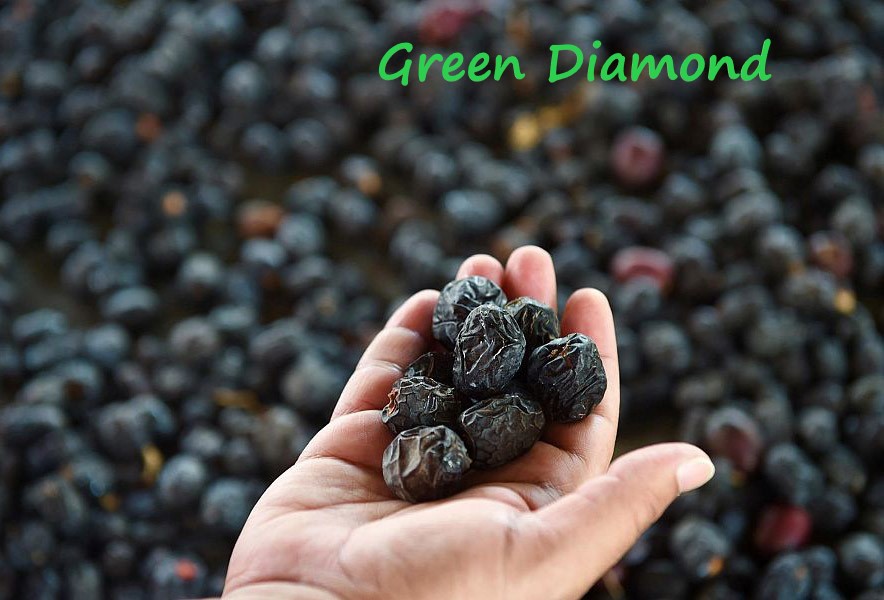The Malaysian Kurma Industry: Exploring the Rich Tradition of Malaysian Dates

The Malaysian kurma industry is deeply rooted in the country’s culinary heritage and cultural traditions. Kurma, dates, holds a special place in Malaysian cuisine, particularly during festive occasions and religious celebrations. This article delves into the rich tradition of Malaysian kurma, exploring its cultural significance, the different types of kurma produced in the country, and the thriving kurma industry. Join us as we embark on a journey through the flavors, history, and economic importance of kurma in Malaysia.
1. Kurma in Malaysian Culture:
a. Symbolism and Festive Traditions: Kurma plays a significant role in Malaysian culture, particularly during festive occasions, such as Eid al-Fitr (Hari Raya Aidilfitri). Breaking the fast with kurma is a cherished practice, symbolizing blessings, abundance, and gratitude. Kurma is also an essential ingredient in traditional Malay dishes, desserts, and beverages, adding a touch of sweetness and depth of flavor.
b. Cultural Significance: Kurma holds cultural significance as a staple food that has been consumed for centuries in Malaysia. It is deeply ingrained in the local cuisine and is often associated with hospitality, generosity, and unity. The presence of kurma in Malaysian households and festive gatherings reflects the importance of tradition and the preservation of cultural practices.
c. Traditional Medicinal Uses: Beyond its culinary uses, kurma is believed to possess medicinal properties in traditional Malaysian medicine. It is revered for its potential health benefits, such as providing energy, aiding digestion, and boosting the immune system. These traditional beliefs have contributed to the enduring popularity and consumption of kurma in Malaysia.
2. Varieties of Kurma in Malaysia:
a. Ajwa Kurma: Ajwa kurma, known for its dark color and soft texture, is highly regarded for its rich flavor and nutritional profile. It is often referred to as the “King of Dates” and is sought after for its unique taste and potential health benefits. Ajwa kurma is a popular choice during Ramadan and is used in various Malaysian recipes, such as kurma chicken and kurma desserts.
b. Safawi Kurma: Safawi kurma, with its dark brown color and chewy texture, is another beloved variety in Malaysia. It is known for its sweet and caramel-like taste, making it a versatile ingredient in both sweet and savory dishes. Safawi kurma is often used in Malaysian desserts, such as kurma pudding and kurma cookies, adding a delightful burst of flavor.
c. Medjool Kurma: Medjool kurma, originating from the Middle East, has gained popularity in Malaysia for its large size, softness, and sweetness. It is often referred to as the “Queen of Dates” and is highly prized for its luscious texture and rich taste. Medjool kurma is a favorite choice for gifting and is enjoyed on its own or incorporated into various Malaysian recipes, such as kurma smoothies and kurma tarts.
3. The Thriving Malaysian Kurma Industry:
a. Local Production: Malaysia possesses favorable climatic conditions for date cultivation, particularly in states such as Perlis, Kedah, and Johor. Local farmers and plantations contribute to the production of kurma in the country, ensuring a steady supply of fresh dates throughout the year. The Malaysian government has also supported the development of the kurma industry through various initiatives and research programs.
b. Economic Impact: The Malaysian kurma industry has significant economic importance, providing employment opportunities and contributing to the country’s agricultural sector. It supports local farmers, processors, and distributors, stimulating economic growth in rural areas. The export of Malaysian kurma to international markets also generates foreign exchange and strengthens Malaysia’s position in the global dates trade.
c. Quality Assurance and Certification: The Malaysian kurma industry emphasizes quality assurance and adheres to strict food safety standards. Local kurma producers and processors prioritize the use of sustainable farming practices and undergo certification processes, such as Good Agricultural Practices (GAP) and Hazard Analysis and Critical Control Points (HACCP). These certifications ensure the production of safe, high-quality kurma products.
4. Kurma Malaysia: Promoting Local Kurma Products:
a. Kurma Malaysia Campaign: The Kurma Malaysia campaign, initiated by the Malaysian government, aims to promote and raise awareness about local kurma products. The campaign highlights the diverse range of Malaysian kurma varieties, their nutritional benefits, and their role inlocal culture. It encourages consumers to support local kurma producers and enjoy the flavors of homegrown dates.
b. Culinary Innovation: Malaysian chefs and food entrepreneurs are constantly exploring innovative ways to incorporate kurma into modern dishes and products. From kurma-infused beverages to kurma-flavored ice creams, these creative endeavors showcase the versatility of kurma and attract a wider audience, including tourists and food enthusiasts.
c. Tourism and Cultural Experiences: The Malaysian kurma industry also contributes to the tourism sector by offering unique cultural experiences. Date plantations and farms welcome visitors, allowing them to witness the cultivation and harvesting processes firsthand. Tourists can also participate in kurma-related workshops, where they learn about the history, preparation, and culinary uses of kurma in Malaysian cuisine.
Conclusion:
The Malaysian kurma industry is a testament to the rich culinary heritage and cultural traditions of the country. Kurma holds a special place in Malaysian culture, symbolizing blessings, abundance, and togetherness. With a wide variety of kurma available, such as Ajwa, Safawi, and Medjool, Malaysians embrace the flavors and nutritional benefits of these dates. The thriving kurma industry contributes to the local economy, supports farmers and processors, and promotes sustainable agricultural practices. By celebrating and promoting local kurma products, Malaysia showcases its unique flavors and invites both locals and tourists to indulge in the delights of Malaysian kurma.